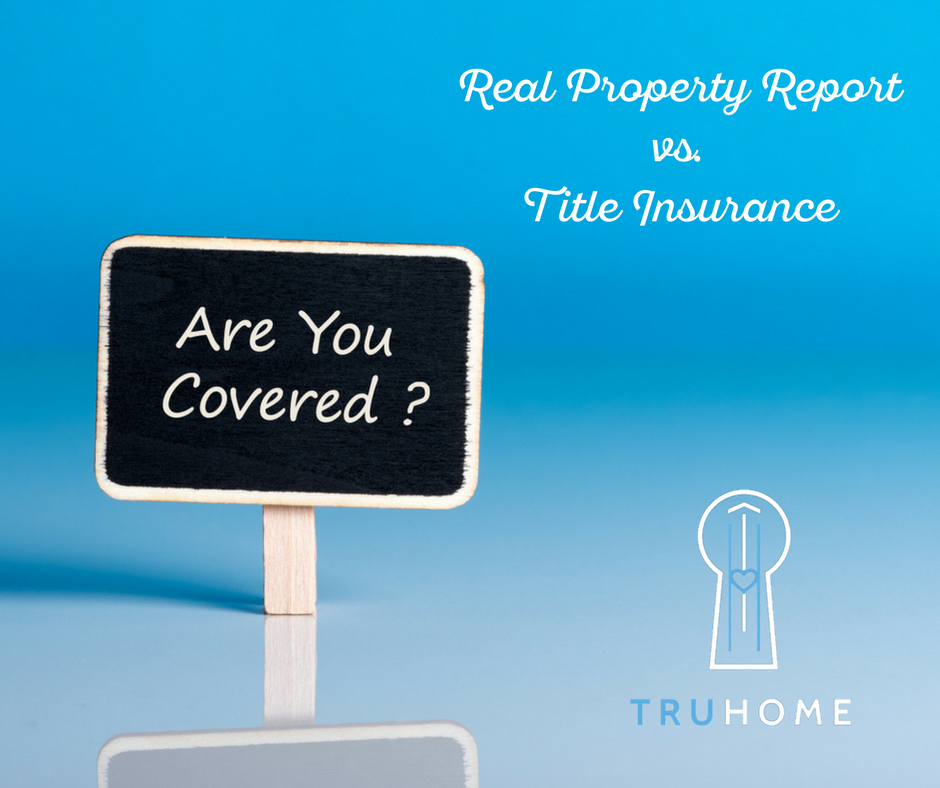
When you get deep into the process of buying a property, you will start to deal with some topics that you may not have been familiar with previously. For instance, the subject of Real Property Reports and Title Insurance will likely come up. What are these? Is one better than the other? Are they necessary when you are purchasing (or selling) a home? Let’s take a closer look to provide you with some clarity on the matter.
The Basics
First up, we’ll talk about Real Property Reports. These are legal documents that provide critical information about the property in question. Specifically, they will outline the precise boundaries of the property, along with the location of any buildings (known as improvements). Rather than just assuming that you know where a given property begins and ends, the Real Property Report will take any guesswork out of the equation. You will be able to look at this document and confirm that the property is exactly what you believed it to be.
Title insurance is a little different. As the name ‘insurance would indicate, there is some protection that comes along with this policy. If you have title insurance, you are protected in the case that some of the improvements on a property do not actually comply with zoning laws. You may just assume that a property you purchase will be in compliance with the local laws, but that might not be the case. When you carry title insurance, you may have financial protection if you have to make changes to your property in order to become compliant with the laws.
It might help to walk through an example to better illustrate this concept. Let’s imagine you purchase a property with two different structures (improvements) on the land. One of the structures is the main home, while the other is a shed/storage building. There is nothing wrong with the home from a zoning perspective, but you find out later that you are not allowed to have an additional building in the location of the shed. That means the shed must come down, and completing such a project is not cheap. Without title insurance, you would be stuck to foot the bill all on your own. If you do have title insurance in place, your policy should cover the cost of bringing your property up to code.
Not the Same Thing
It should be clear by this point in the article that Real Property Reports and title insurance are not the same thing. They do deal with the same general subject – making sure the property that you purchase is compliant with local zoning requirements – but they perform their functions differently. The Real Property Report is just that – a report. It doesn’t provide you with any coverage, but it does provide you with valuable information. With title insurance, the story is the opposite. You really aren’t learning anything about your property, but you are getting coverage in case something comes up down the line.
Time is a Factor
One of the things to consider when thinking about Real Property Reports and title insurance is the fact that getting an RPR takes time. You might not be able to get one quickly, so the entire process of purchasing a home could be delayed as a result. And, if you as the buyer request an RPR, you could be at a disadvantage compared to other potential buyers. If the homeowner has other offers, and one of those offers doesn’t ask for an RPR, you may lose out on the home altogether. In theory, a seller should have a valid RPR available as it considered a normal closing document, however, this is not always the case.
The beauty of title insurance is the speed. You or the seller will have to pay for this policy, however once purchased, you should be able to close your deal promptly, without any delays. In addition to providing coverage for issues that would come up during the creation of a Real Property Report, title insurance also provides coverage that goes beyond the scope of an RPR. So, even with an RPR in hand, there is still an argument to be made for purchasing title insurance.
Not an Either-Or Situation
You don’t have to pick between one or the other in this discussion. There is plenty of room for Real Property Reports and title insurance to exist side-by-side. In fact, that is often the best solution in the end. The Real Property Report serves a valuable purpose, and it can give home buyers important peace of mind as they make an offer and prepare to close a deal. However, title insurance has its own peace of mind to offer, and it lasts for the entire duration that the buyer owns the property in question.
As is always the case in real estate, every situation is unique. If you are getting ready to make an offer on an Edmonton home, you will want to think about the details of your situation before deciding how to proceed on this part of the deal. For example, if you are buying a property that has a recent RPR in place, and there are no obvious trouble spots to worry about with regard to zoning, you may feel comfortable going without title insurance. Or, if there is no RPR and you don’t want to delay the sale by asking for one, you might opt for title insurance to hopefully cover your bases. It is impossible to provide advice that would apply to all situations, since each real estate transaction is different. If you have questions, your agent and lawyer are great resources for information.
When you enter the home buying process, it is important to have as much information on your side as possible. Real Property Reports and title insurance might not be the most important part of making a deal, but they do matter. If you have any remaining questions, speak with your agent about the pros and cons of having an updated RPR, as well as the pros and cons of carrying title insurance. In the end, make the decision that gives you a good feeling about the purchase as a whole.
TruHome is a local Edmonton real estate team: hyper engaged in the city of yeg and here to help you with all your buying and selling needs. Let’s chat!





